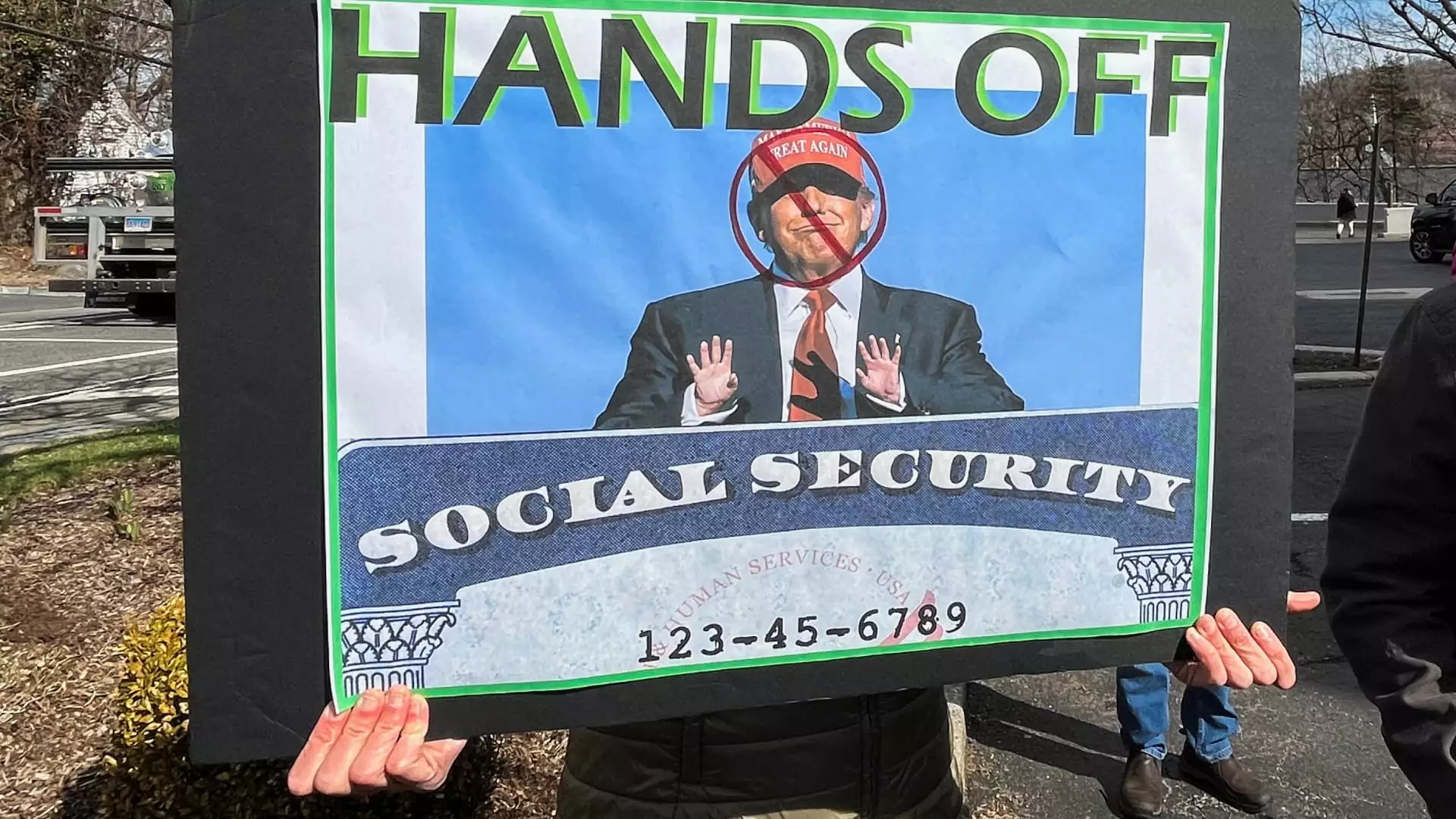The recent ruling from U.S. District Judge Ellen Lipton Hollander, which has blocked the Department of Government Efficiency (DOGE) from accessing sensitive personal data, speaks volumes about the desperate need to ensure that the government acts responsibly when tasked with the protection of citizen information. This incident isn’t merely a procedural squabble; it unfurls a narrative of governmental overreach, accountability issues, and ethical dilemmas surrounding privacy rights. The administrators involved are not just faceless bureaucrats; they represent a frightening possibility—a power hungry cabinet concerned with their agenda rather than the welfare of Americans.
In a world where technology often outpaces ethical considerations, the government’s actions raise countless questions. Can we trust that the officials in charge are motivated by genuine concern for public welfare, or are they driven by political agendas that exploit sensitive data for their own ends? The injunction granted by Hollander is essential not just for shielding information from misuse, but as a broader protection of civil liberties.
A Coalition of Concerned Citizens
The lawsuit spearheaded by the American Federation of State, County, and Municipal Employees, among others, serves as a testament to collective activism in the face of potential injustice. These organizations are not merely engaging in theatrics; they are taking a stand against what they view as a direct violation of civil rights, citing infringements on the Privacy Act, Social Security Act, and other vital legislation designed to safeguard personal information.
When a coalition of such diverse entities comes together against governmental actions, it signals a glaring warning to policymakers. The awareness of a collective onslaught against invasive protocols ensures a check against governmental power. It reflects the democratic principles that should, or at least could, motivate our divisions within the federal system. Unfortunately, when such alliances have to be formed, it often means the government has overstepped its bounds at the expense of everyday citizens.
Whistleblipped Officials: A Call for Accountability
Adding intrigue to this unfolding debacle are the implications of the involvement of political figures, including advisors to President Trump. The names implicated—like that of Elon Musk—bring forth a whirlwind of questions. Should these high-profile individuals, who hold significant sway within political circles, be accountable for overreaching directives? Their involvement gives rise to deeper anxieties over transparency. Are politicians now more interested in exerting control over the very systems meant to protect and serve, rather than collaborating for a genuine solution?
When individuals in power prioritize their objectives over ethical engagement with the citizenry, they not only gamble with public trust but also skew the fundamental bedrock of democracy. Thus, the ruling from Judge Hollander isn’t just a legal matter; it has incredibly significant moral weight that begs for introspection and a re-evaluation of government priorities.
What Lies Beneath: The Chilling Effects of Data Misuse
The nature of this case extends beyond mere data access restrictions; it calls attention to the wider issue of data misuse and the ramifications that follow. The ruling specified the prohibition against accessing, altering, or disclosing sensitive information stored within the Social Security Administration. This move is paramount not only for preserving individual privacy but also for maintaining the trust that citizens place in institutions meant to safeguard their interests.
As we look to the future, any attempt by the government to reestablish authority via data collection must be met with skepticism and accountability. The injunction acts as a wake-up call – a reminder that unchecked governmental power can lead to a slippery slope, eroding the civil liberties integral to a free society.
The restriction of DOGE’s data access is a moment of triumph for civil society, but it must also be a rallying cry for continued vigilance. Our data should not be akin to raw material that can be harvested for political expedience. Therefore, as citizens, we must remain alert, ensuring our rights do not become collateral damage in the quest for efficiency within government agencies.

